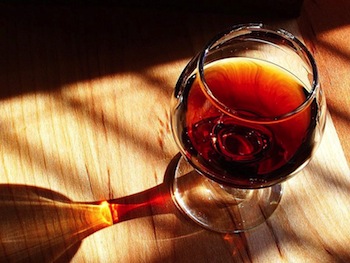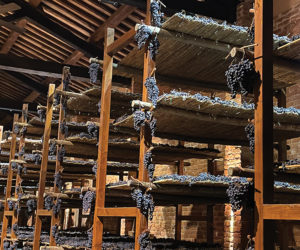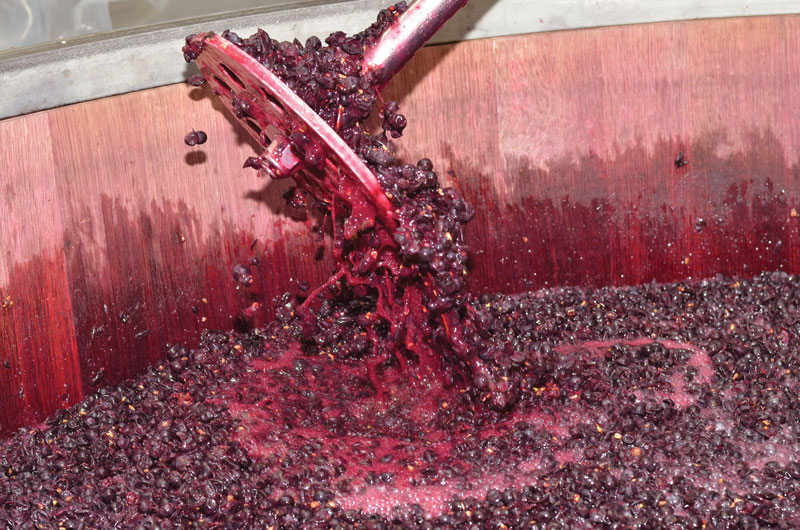
“The wine helps. We should visit my landlord’s flat, and then you’ll understand.”
The landlord was a pudgy older man, mostly bald and deeply tanned. He wore loose-fitting khaki trousers, flip-flop sandals, and a white sleeveless undershirt from which little tufts of gray hair were protruding. After a brief introduction he escorted us to his kitchen and invited us to sit at a heavy wooden table. The other two started smoking.
Our host turned to a sideboard and removed a large, ancient-looking carafe. He then set a glass tumbler before each of us. After filling them with a deep red wine, he gestured for Klemes and me to take a drink. It was crisp, hearty, and delicious.
We proceeded to work our way through the contents of the jug. At some point I noticed that the old man tapped the table with his glass before every sip. Looking more closely, I saw that he also raised the glass and sniffed it before each drink. I asked Klemes what the ritual meant. He translated my question, and the man smiled before launching into a detailed explanation. He made liberal use of his hands to illustrate.
When the landlord paused, Klemes turned to me. “He says that wine is too important just to drink it. You have to experience it with all your senses — with your ears by touching your glass to the table or clinking it with another glass, with your eyes by holding it to the light, with your nose by sniffing it. Finally, in your mouth you feel it on your tongue and taste it with your taste buds. Only when you drink it this way can you truly appreciate it and give it the proper respect.”
Some months later a Greek Orthodox priest in Seattle would describe his concept of worship in a similar way. Touching the holy water, seeing the icons, hearing the cantor, smelling the incense, and tasting the communion bread — these, he told me, work together to create a complete physical awareness of the presence of God.
Responding to the landlord, I picked up my tumbler and reached across the table. The man touched his glass to mine. Then I deliberately lifted mine toward the window, peering through the ruby potion. I sniffed it carefully and then put the glass to my lips. I felt the liquid roll across my tongue before swallowing it slowly.
The landlord nodded approvingly. He said something that Klemes translated as, “You are doing well on your first visit in Greece,” but was more likely “The kid is too skinny, but he’s a quick study.” Klemes added, “By the way, never drain your glass — here that means you are demanding more, and it comes across as greedy.”
“How do you say ‘Cheers’ in Greek?” I asked.
“Just say ‘Yassou’ — it means everything is fine.” I said it, the others responded, and we kept on drinking. As I shared that quiet kitchen, thoroughly absorbed by the wine and the company, it occurred to me that Athens wasn’t so frenetic after all.




